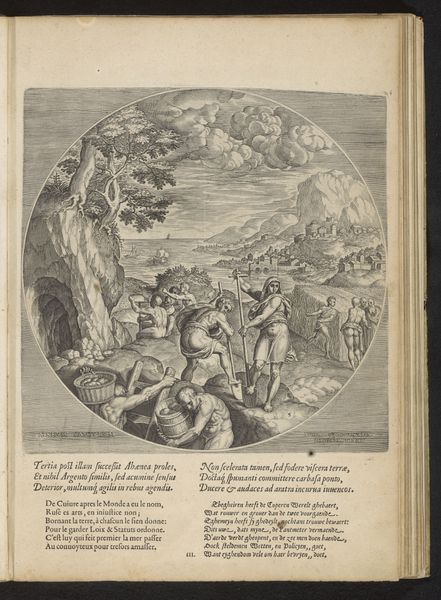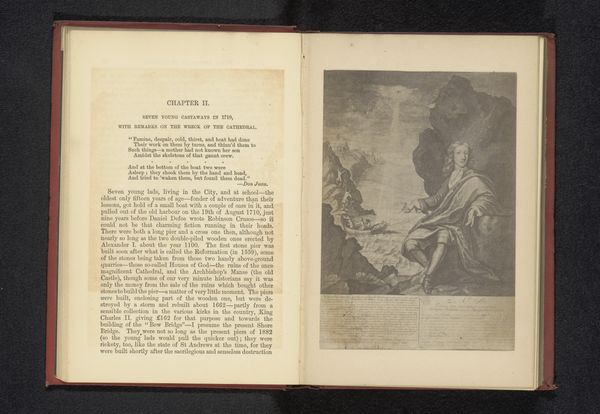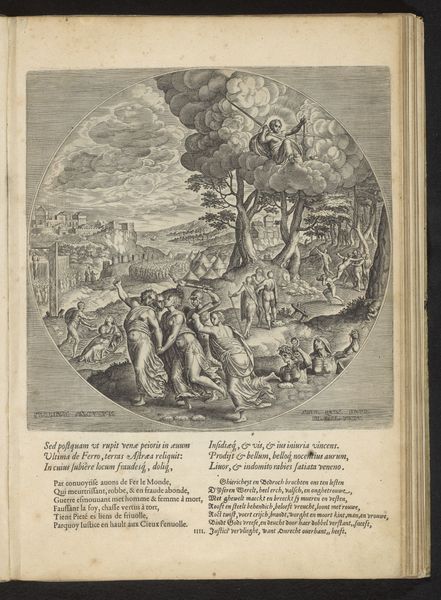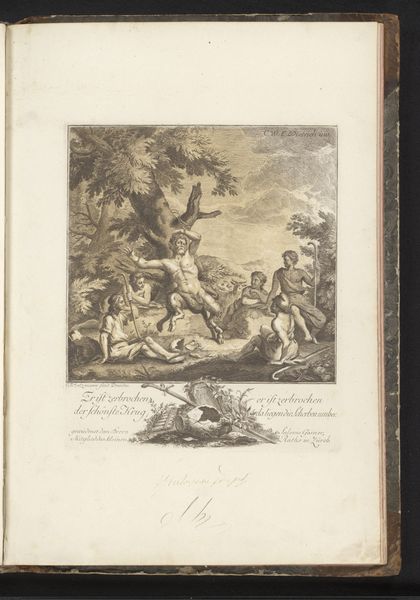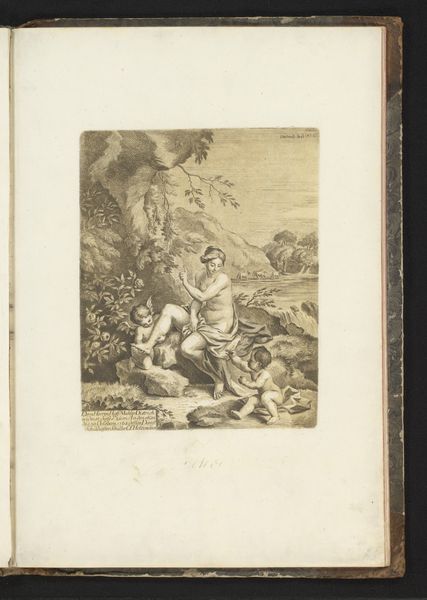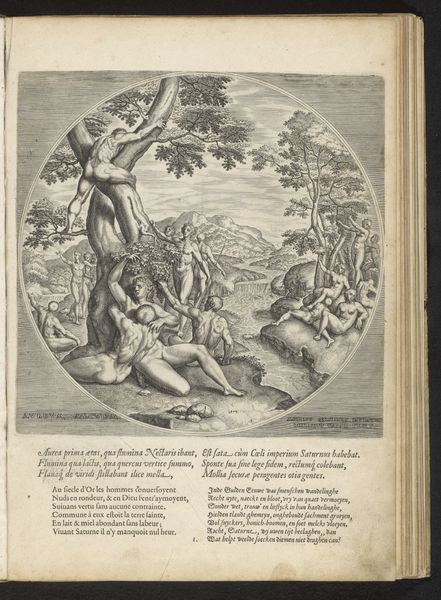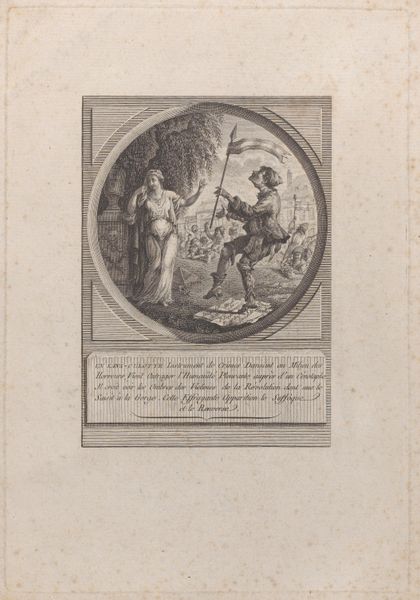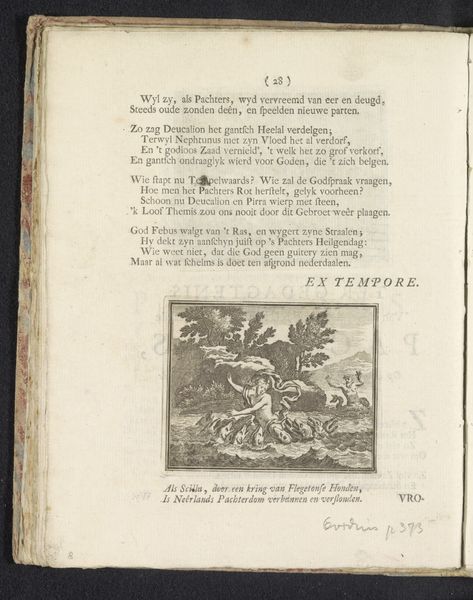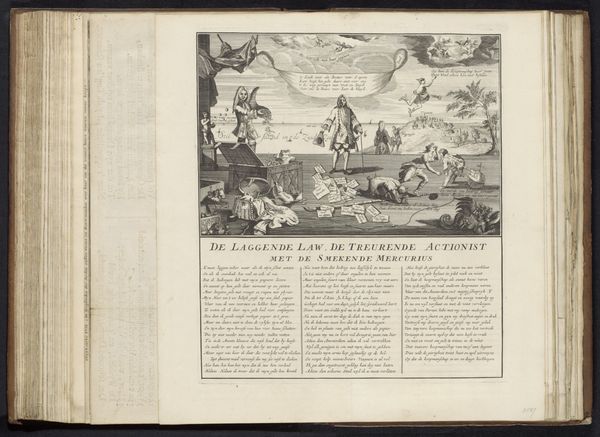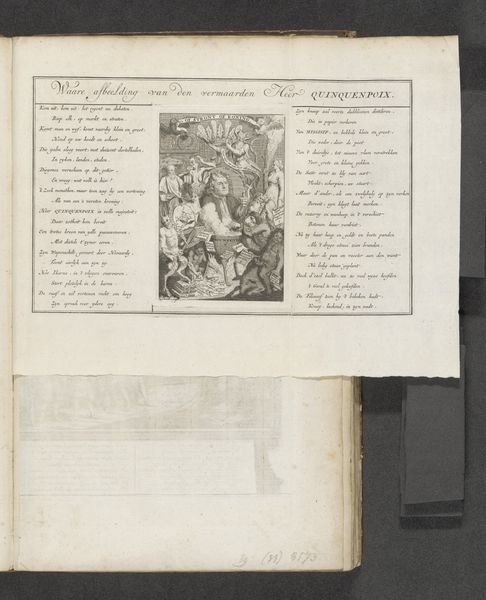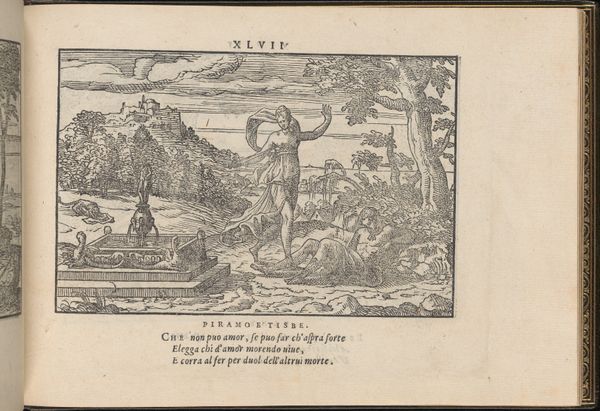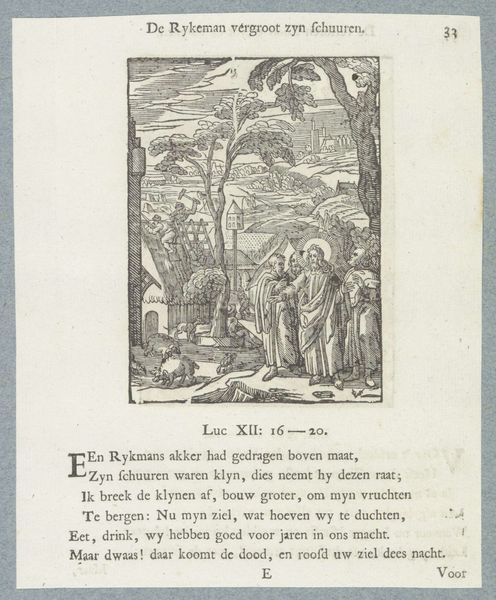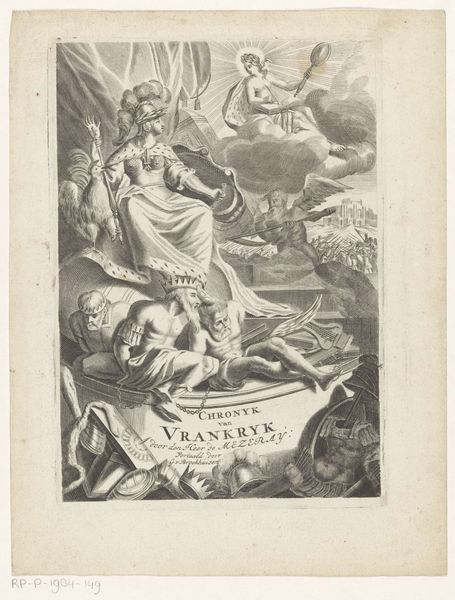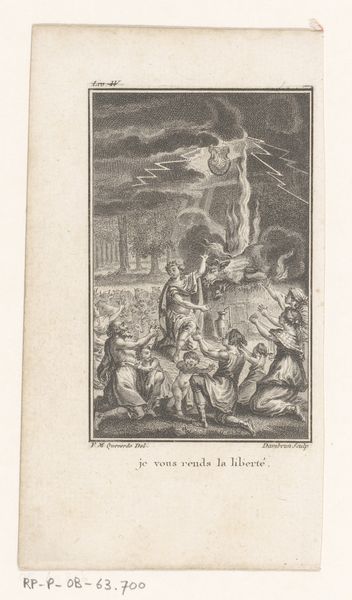
Allegorische voorstelling met Nederlandse maagd, Vrijheid, Tijd en Vroomheid after 1788
0:00
0:00
simonfokke
Rijksmuseum
Dimensions: height 133 mm, width 82 mm, height 165 mm, width 198 mm
Copyright: Rijks Museum: Open Domain
This allegorical print, made by Simon Fokke in Amsterdam around 1783, is an etching, a process involving biting lines into a metal plate with acid, then inking and printing. It's not drawing in the traditional sense, but a chemical means of production. Consider the social context: the print medium made images accessible and reproducible. Unlike painting or sculpture, etching allowed for wide distribution of ideas. Here, we see the Dutch Maiden, Freedom, Time, and Piety, symbols of national identity and virtue. But these ideals are presented amidst the turmoil of the late 18th century, a time of political and economic upheaval. Look closely, and you'll notice details like the shackled figures of religious oppression and violence. This print reflects the tensions between enlightenment ideals and the realities of Dutch society. Etchings like this were a form of public discourse, a way to shape opinion through readily available imagery. The materials, the etching process, and the social context are all intertwined, giving this small print a powerful message.
Comments
No comments
Be the first to comment and join the conversation on the ultimate creative platform.
